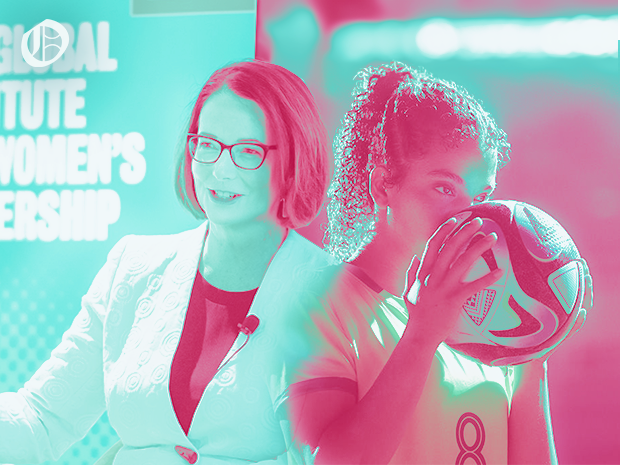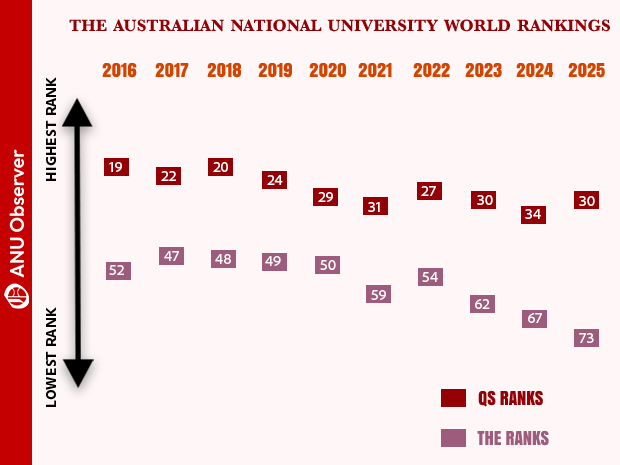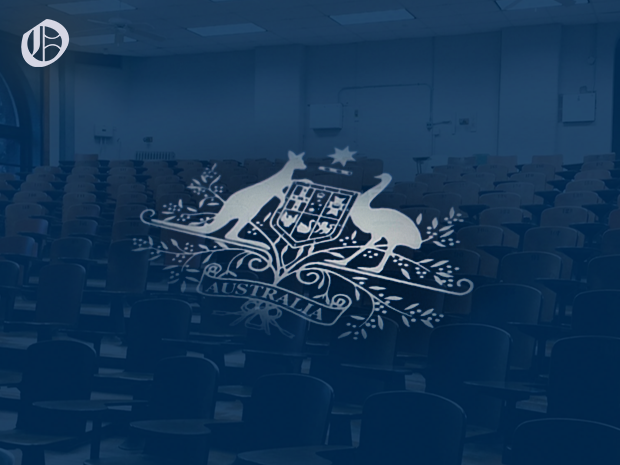“Visibility is accountability,” ANU Hosts Forum on Gendered Barriers in Sport

By Rowey Worner Butcher
On Thursday 3 August ANU hosted a forum discussing gendered barriers in sport, with a focus on the context of football and the ongoing Women’s World Cup. The discussion was led by a range of speakers from different backgrounds and experiences, and was jointly hosted by the Embassy of Brazil, and The Global Institute for Women’s Leadership, which will be holding further talks at ANU in the coming weeks.
The panel discussed multiple factors that have contributed to the ongoing disparity between women and men’s sport globally, including lack of visibility in the media, lack of adequate funding, and the underrepresentation of women in decision-making roles in sport.
Economic disparity was one of the most pressing issues raised by the panel. FIFA has allocated a total prize pool of $110 million USD for the winners of this year’s Women’s World Cup, over triple the amount offered in 2019. However, this figure remains only one quarter of the $440 million USD allocated to the Men’s World Cup.
Lack of funding more broadly was also raised as a large issue in sport, especially as a risk factor for both athletes and coaches. Sue Read, a former Matilda pointed to the fact that many women’s players in football have to play multiple seasons across the year, as opposed to the single season played by many men’s players, as a way to maintain a liveable wage.
“This doesn’t allow for a recovery period, and that is part of why I think we see so many more injuries in Women’s football as opposed to Men’s,” Read said.
Sarah West, Vice President of Football Coaches Australia, also stated how many coaches in Women’s sport are expected to work for free due to a complete lack of funding.
“It’s a form of financial abuse,” Dr. Vincent Soho, Senior Lecturer in leadership at Melbourne University stated.
The panelists also spoke to how changes in sporting policy regarding gender equity, especially regarding equal pay, can have flow on effects in the professional sector.
They referred to the example set by Brazil, where president Luiz Inácio da Silva signed a law earlier this year to guarantee equal pay for men and women following the Brazil Soccer Federations decision to mandate equal pay for men and women’s teams in both the World Cup and Olympic Games.
Facilitator of the discussion, Professor Michele Ryan spoke to the commonalities in gendered barriers in both sport and professional realms, specifically with respect to, “Unequal pay and unequal recognition of their talent.”
The panel spoke further about visibility in the media as a significant impact on the increasing popularity of women’s sports, particularly this latest world cup. Dr. Soho spoke to the importance of creating “icons” like Sam Kerr, or the legendary Brazilian player Marta to empower and encourage younger players into the sport.
Chantelle Jones, goalkeeping coach of the Young Matildas then referred to the removal of Women’s A-League games from free-to-air TV as a “disappointing step backwards” for the game.
Read further commented that by only televising Australian games for the Women’s world cup on free-to-air TV, media were depriving the public of the “immersive experience” that is granted during the Men’s World Cup through the constant broadcasting of all games.
“Visibility is accountability,” Read stated. “Storytelling is what makes people love the sport.”
The panel also discussed inequity in broader sports industry positions such as management, coaching, and journalism.
“There is less reporting on women’s sports than is proportional to women’s participation in those same sports,” Dr. Soho claimed. Soho was referring to the latest Wimbledon coverage, where despite women having near-equal participation in the competition, had 41% less media coverage than their male counterparts.
Moving forward, the panelists spoke of the importance of greater visibility of women’s sports working in tandem with greater resource allocation. AFL was pointed to as a progressive example of bolstering women’s sports. “By empowering women you empower the sport as a whole,” Jones stated.
“Giving money to women doesn’t mean taking away from men,” Sarah West, Vice President of Football Coaches Australia added.
As for who would win the world cup? “I’ll always back the Matildas,” stated West.
Graphics by Will Novak









